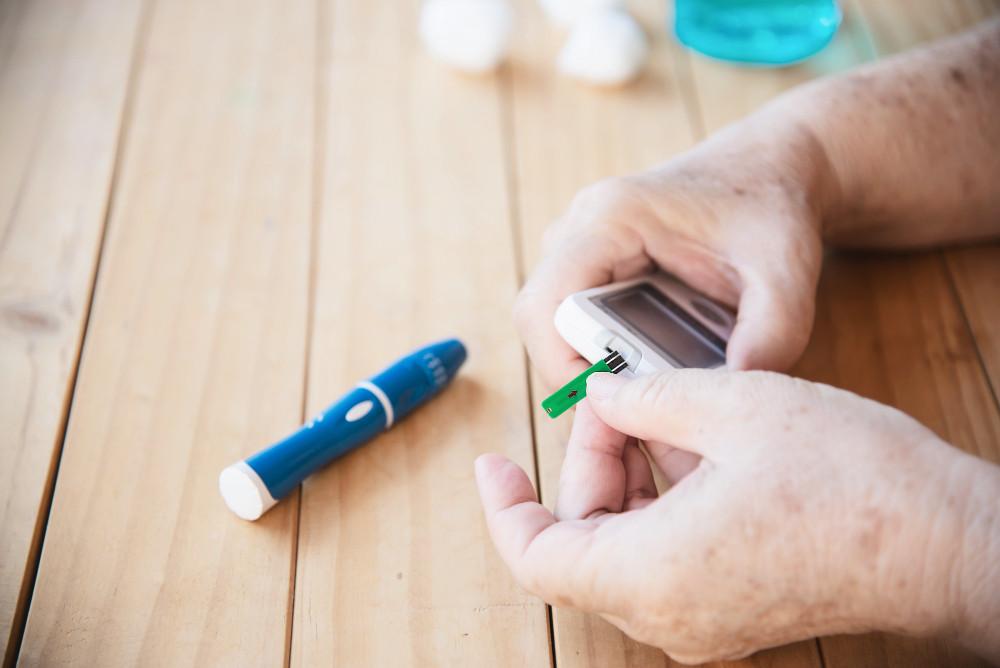Unsweetened black coffee is the globally favorite beverage. A lot of people take pleasure in it as a habit for breakfast or as a source of energy to start the day.
When consumed black, without sugar or cream, coffee has essentially no calories at all. It may be good for your health because of the nutrients it contains.
Nutritional composition of black coffee
A cup of black coffee (± 240 grams) without added cream and sugar contains the following nutrients:
- Calories 2.4
- Fat: 0 g
- Sodium: 4.8 mg
- Carbohydrates: 0 g
- Fiber: 0 g
- Sugar: 0 g
- Proteins: 0.3 g
- Potassium: 118 mg
- Magnesium: 7.2 mg
Benefits of consuming unsweetened black coffee
Despite the fact that black coffee without sugar has few nutrients when analyzed nutritionally, there are still several health benefits to drinking it without cream or sugar:
Prevent Alzheimer's and Parkinson's disease
Several studies indicate that avoiding added sugar in black coffee may be associated with a reduced risk of developing Alzheimer's disease. Carbon quantum dots (CQDs) derived from acidic substances, such as coffee grounds, may protect the brain against neurodegenerative diseases like Alzheimer's and Parkinson's.
Carbon quantum dots (CQDs) are nanoscale particles composed of carbon that have unique characteristics such as electrical conductivity, fluorescence, and the capacity to engage with diverse biological molecules. This molecule, derived from phenols, has the ability to prevent oxidative damage and reduce inflammation, thus protecting the brain against neurodegenerative diseases.
Prevent cancers
Several studies indicate that drinking black coffee, without any additional cream or sugar, is related to a lower risk of developing various forms of cancer, including breast cancer, colorectal cancer, and liver cancer.
Chlorogenic acid, one of the antioxidants found in coffee, helps protect human cells from free radical damage. Free radicals are known to cause cell damage and contribute to the growth of cancer cells.
However, there is inadequate scientific evidence to confirm this. As part of a balanced diet, black coffee with no sugar or cream may be beneficial.
Reduce the risk of liver cirrhosis
Black coffee drinking has been associated to a lower incidence of liver cirrhosis, particularly in cases of cirrhosis caused by alcohol. It is reported that drinking four or more cups of black coffee per day can lower the risk of alcoholic cirrhosis by up to 80% and non-alcoholic cirrhosis by 30%.
Improve mood
Coffee contains caffeine, which acts as a stimulant, improving mood, increasing alertness, and reducing tiredness. Caffeine can boost the levels of neurotransmitters like dopamine and serotonin, which can contribute to feelings of enjoyment and satisfaction.
Control diabetes
According to research, drinking coffee with and without caffeine reduces the risk of type 2 diabetes. However, it should be noted that the effect of caffeine on insulin function and blood sugar levels varies from person to person, depending on a variety of parameters such as caffeine intake, individual sensitivity to caffeine, blood sugar levels, and diabetic status.
Control body weight
Caffeine may help with weight control, according to some research, although the correlation between the two is still unclear. Black coffee, which does not include any sugar, is associated with a lower risk of weight gain compared to other beverages.
If you have specific objectives regarding weight management or the prevention of specific health conditions, black coffee without sugar should not be your only source. It is recommended to seek guidance from a medical professional or nutritionist regarding your specific needs.
If you need medical advice or consultation, you can either visit a doctor or make use of the consultation features that are available in the Ai Care application by downloading the Ai Care application from the App Store or Play Store.
Looking for more information about nutrition, food, and other diet tips? Click here!
- dr. Alvidiani Agustina Damanik
WebMD (2022). Health Benefits of Black Coffee. Available from: https://www.webmd.com/diet/health-benefits-black-coffee
SaVanna Shoemaker, MS, RDN, LD (2021). Black Coffee: Benefits, Nutrition, and More. Available from: https://www.healthline.com/nutrition/black-coffee
Malia Frey, MA, ACE-CHC, CPT (2021). Coffee Nutrition Facts and Health Benefits. Available from: https://www.verywellfit.com/coffee-nutrition-facts-and-health-benefits-3495233
Kaitlin Vogel (2023). Could coffee grounds be the key to preventing Alzheimer’s and Parkinson’s?. Available from: https://www.medicalnewstoday.com/articles/coffee-grounds-treatment-preventing-alzheimers-parkinsons-huntingtons
Claire Sissons (2023). Can coffee cause cancer?. Available from: https://www.medicalnewstoday.com/articles/322649
Steven Brown (2022). Can Coffee Help Your Liver?. Available from: https://www.webmd.com/hepatitis/coffee-help-liver
Elizabeth Hartney, BSc, MSc, MA, PhD (2021). What to Know About Caffeine Use. Available from: https://www.verywellmind.com/what-are-the-effects-of-caffeine-on-the-brain-21842
M. Regina Castro, M.D. (2022). Caffeine: Does it affect blood sugar?. Available from: https://www.mayoclinic.org/diseases-conditions/type-2-diabetes/expert-answers/blood-sugar/faq-20057941











